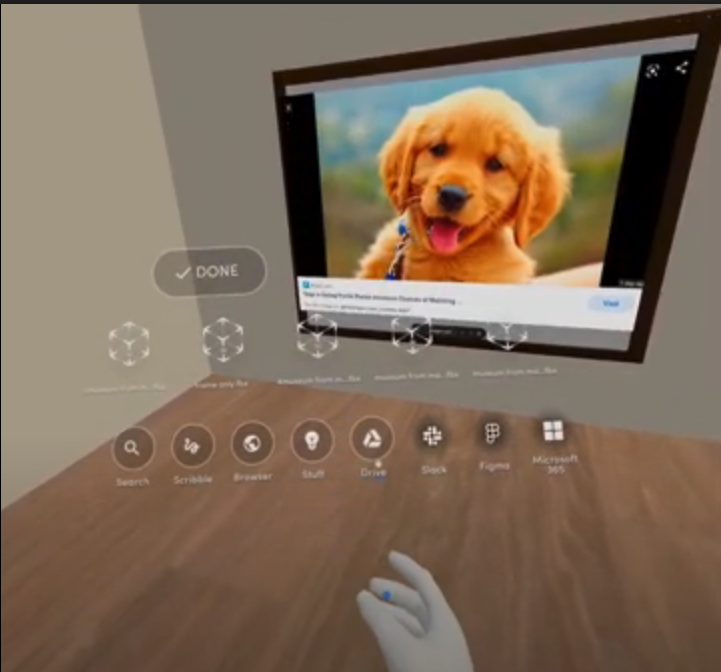Tools
Spatial VR, Unity
Methods
Mixed Methods, including:
- Qualitative interviews
- Ethnographic observations in VR
- Quantitative metrics within VR
Overview
Collaborative VR is an exploratory research project investigating how to design VR environments to improve professional collaboration. Using a mixed methods approach and social psychology, the team has defined 4 different environments where users will be able to interact with each other, build relationships, and complete tasks. This project seeks to redefine how we work, exploring how to create strong team dynamics beyond any physical constraints.
Context
With the increasing popularity of Virtual Reality environments, this exploratory research project investigates how VR can be used to encourage collaborative practices in professional settings. The project explores 3 situations of collaboration:
- Relationship-Building Meetings
- Presentations for Decision-Making
- Co-creation Sessions
The team will study how group meeting spaces in VR can help shape factors including roles, relationships, and motivations within each situation.
Problem Space
The team is conducting exploratory design research to learn how to discourage harmful behaviors and encourage helpful ones in the context of professional collaboration among people already familiar with VR. This project explores how to help professionals accomplish their work, while also injecting playful, delightful experiences.
Team
The project is led by Erica Cruz, a PhD student at Carnegie Mellon University’s Human-Computer Interaction Institute. She joined the Collaborative VR project due to passion for working with VR and playful design. She came onboard the project because it allows her to explore her interest in creating intentional spaces: ones that can be inhabited by communities.
VR Environment
Right now, the team is exploring four potential areas of development:
- Avatars for manipulating objects in VR
- Manipulating objects in space, stretching beyond normal objects that foster collaboration (such as sticky notes) and into a more creative realm that is only possible through VR (such as working around a campfire.)
- Public cues for interactions conducive to productive collaboration. For example, the team could inject moments of joy by displaying fireworks after finishing tasks to motivate people to keep up the good work.
- Private cues for interaction such as maintaining inclusive communities in VR.
The example scenarios are subject to change because the team is still in the exploratory research phase.

Research Timeline
The team will begin preliminary internal testing in late March 2021. In Summer 2021, they plan to enter a heavy prototyping phase to create the VR environments. In Fall 2021, they will test the prototypes, with plans to iterate and improve on the experience based on the research findings.
Challenges
Not all of the RAs have headsets, so the team had to develop a workflow that accounted for this limitation in resources. The team is developing for Unity without being able to debug in VR as well as working in a complex situation while being socially apart. The team developed a workflow so that whenever someone is making a prototype, they are able to think about who they are handing it off to and help people prototyping without headsets understand the reason why their code is not working.
Impact
Ultimately, this project seeks to push the limits of when, where, and how we work together by addressing unproductive group behavior beyond the limitations of a physical space. With the research, the team seeks to develop a better understanding of how and why VR environments can encourage and discourage certain behaviors to create a set of practices and recommendations that can help prevent or circumnavigate problems.
Team
Project Leads
Jessica Hammer, HCII
Geoff Kaufman, HCII Professor
Kim Hyatt, Heinz Professor
Erica Cruz, PhD
RA Team
Brady Baldwin, MHCI 21’
Payal Bhujwala, Alumna
Janet Li, Undergrad
Emma Lloyd, Undergrad
Tam Nguyen, MHCI 21’
Sunny Sun, Undergrad
Crystal Xue, Undergrad